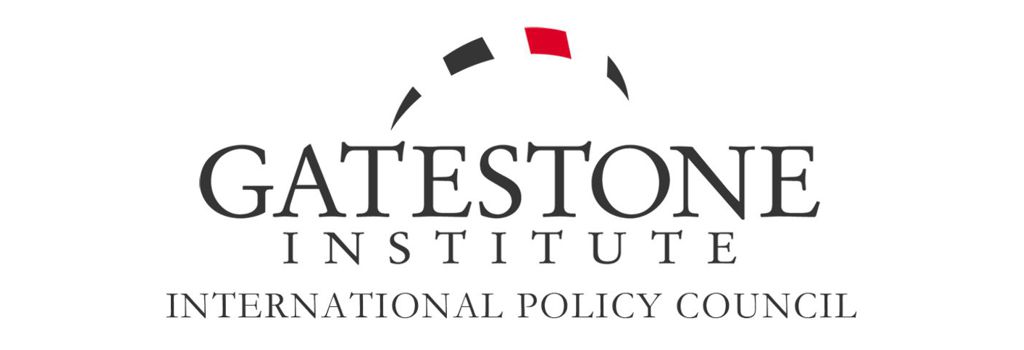
- With his assault on the Philippines, Xi could be finally making his own move in East Asia.
- Beijing claims all the features and waters inside its infamous “cow’s tongue,” now defined by ten dashes on official maps, which encloses about 85% of the South China Sea. Those waters, the Chinese proclaim, are “blue national soil.”
- It appears… that China’s leader is not planning to start hostilities with an invasion of the main island of Taiwan.
- Xi, in the domestic political landscape he has shaped, knows he is vulnerable, especially because his policies are being blamed for making a deteriorating situation worse. Xi needs a quick political victory, but unfortunately for him, a takeover of Taiwan is out of reach.
- That means, I think, he has decided to move on a weak neighbor. The Republic of the Philippines fits the bill.
- The risk is that an attack on the Philippines will lead to general conflict in the region. As an initial matter, Manila and the U.S. are parties to a 1951 treaty. The Biden State Department has issued written warnings — the last one on August 19 — that the U.S. was willing to use force against China to discharge its obligations…
- In addition, NATO members over the last several years have become involved in the South China Sea.
On Aug. 23, China’s foreign ministry said that the country had taken “countermeasures” against two Philippine military aircraft near Subi Reef in the South China Sea.
Four days earlier, Chinese Coast Guard vessels, without justification, rammed two Philippine boats near Sabina Shoal as they tried to resupply forces stationed at Flat and Nanshan Islands.
The move follows belligerent acts on June 17 at nearby Second Thomas Shoal, when Chinese vessels rammed Philippine craft, seized two of them, and wounded eight sailors, one seriously. On March 5, China wounded four Filipino sailors at Second Thomas, where Manila in 1999 grounded the Sierra Madre, a World War II-era vessel, to bolster its territorial claims.
All of these incidents took place close to main Philippine islands and therefore far from China. Sabina, for instance, is 124 nautical miles from Palawan of the Philippines and more than eight times that distance to China’s Hainan.
Xi Jinping has also been waging proxy wars far from China’s borders, most notably fully supporting Russia’s drive to absorb Ukraine and Iran’s attack on Israel. With his assault on the Philippines, Xi could be finally making his own move in East Asia.
Beijing claims all the features and waters inside its infamous “cow’s tongue,” now defined by ten dashes on official maps, which encloses about 85 percent of the South China Sea. Those waters, the Chinese proclaim, are “blue national soil.”
China’s expansive claims to Philippine features in that body of water were invalidated in 2016 by a Hague tribunal adjudicating Philippines vs. China, brought under the U.N. Convention on the Law of the Sea. Beijing, with virtually no legal support, has consistently maintained that the decision in favor of Manila “is illegal, null, and void.”
Despite lack of justification, China’s leader Xi Jinping has committed one provocation after another in Philippine water. At the same time, Chinese actions against Taiwan have appeared far less serious. That is curious because Xi ardently desires to annex the island republic and has even staked his personal legitimacy on accomplishing that goal.
It appears, therefore, that China’s leader is not planning to start hostilities with an invasion of the main island of Taiwan.
Why not?
First, the costs in blood of such a move would be too high for the Chinese Communist Party (CCP) to survive. Richard Fisher of the International Assessment and Strategy Center estimates that China could lose about 50,000 troops, sailors, and pilots even if it were able to both achieve complete surprise in mobilizing thousands of barges, ships, and planes and prevent others from coming to Taiwan’s rescue. “Should China fail to gain complete surprise and the United States and Japan successfully mount a counterattack that included sea-air combat and combat on Taiwan, China could lose 100,000 troops,” Fisher told me.
Xi, I suspect, believes such losses, even at the lower end of Fisher’s range, would imperil the Party’s grip on power. At this moment of pervasive gloom and pessimism in Chinese society, people are in no mood for war.
There is also the widely held view that “Chinese should not kill other Chinese.” Taiwan’s people for the most part do not self-identify as “Chinese,” but citizens of the People’s Republic of China see themselves and people on the island as of the same blood. Killing Taiwanese is not bound to be popular, therefore, and killing them in great numbers would be less popular still.
Second, Xi, at a time of personal political peril for him, cannot afford to give up his position as the most powerful person in China. Assembling an invasion force would require ceding to a general or admiral complete control of almost all of the People’s Liberation Army. Xi does not trust his senior officers, as purge after purge in the past year demonstrate and, in any event, he is not going to hand such power to anyone, trusted or not.
Third, China’s military is in disarray and in no condition to fight a major engagement. For instance, the Rocket Force, the branch in charge of almost all the country’s nuclear weapons, has been hit with detentions of dozens of senior officers, including its top two officers, since the middle of last year. With the effective demotion of the newly appointed Defense Minister Admiral Dong Jun—he was unexpectedly denied a seat on the CCP’s Central Military Commission this summer—it is clear the turmoil is continuing.
In the first decade of this century, all top-level decisions in Beijing were made by consensus, so nobody got too much credit or too much blame. Xi took power from others, however, so he now has almost full accountability. To make matters worse for China’s ruler, he raised the cost of losing political struggles, which means he knows he can lose everything if deposed.
Xi, in the domestic political landscape he has shaped, knows he is vulnerable, especially because his policies are being blamed for making a deteriorating situation worse. Xi needs a quick political victory, but unfortunately for him, a takeover of Taiwan is out of reach.
That means, I think, he has decided to move on a weak neighbor. The Republic of the Philippines fits the bill.
“Xi Jinping seems to be making a quiet shift from his bloodlust for Taiwan to more brazen action in the Philippine Exclusive Economic Zone,” Blaine Holt, a retired U.S. Air Force general, told Gatestone. “As China’s economy implodes, as tensions with neighbors increase, as his grand projects like the Belt and Road fall apart, Xi can no longer trust his inner circle to save him from a military he distrusts. China’s leader is a cornered and dangerous dragon.”
The risk is that an attack on the Philippines will lead to general conflict in the region. As an initial matter, Manila and the United States are parties to a 1951 treaty. The Biden State Department has issued written warnings—the last one on Aug. 19—that the United States was willing to use force against China to discharge its obligations pursuant to Article IV of the mutual defense pact. President Joe Biden has orally issued similar warnings, for instance on Oct. 25, 2023, and April 11, 2024.
Moreover, the Philippines has powerful friends in the region, such as Japan. Japan, the United States, and the Philippines have recently formed JAROPUS, a group dedicated to integrated defense. In April, these three partners and Australia held their first joint naval exercise, in the South China Sea.
In addition, NATO members over the last several years have become involved in the South China Sea. France and Germany issued statements condemning China this year, starting in April. Germany and the Philippines in August announced they will soon finalize a defense agreement. France has initiated discussions on a deal.
As China, Russia, and North Korea act together, the United States and its partners have begun cooperating on common defense. The region is dividing, and if war comes, two grand coalitions, which have been rehearsing for the event, will almost certainly fight as teams.
Where does history’s third global conflict start? Think East Asia, probably some Philippine reef, shoal, or ridge of sand. Filipinos now call their country the “next Ukraine.”







